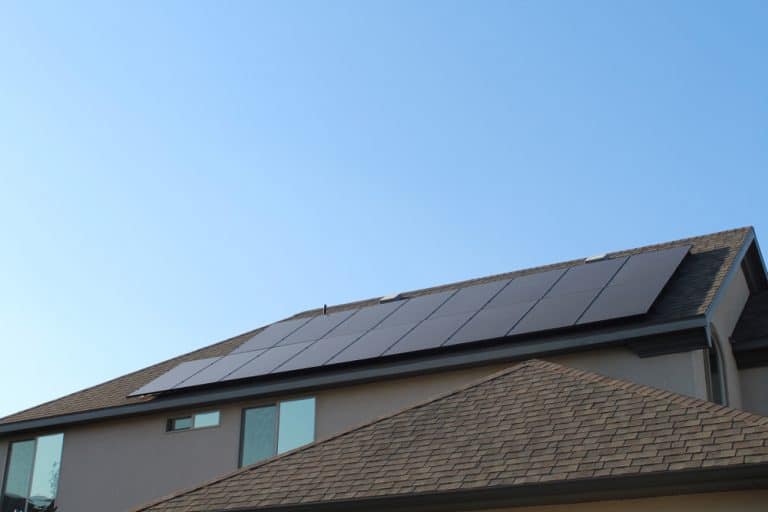What Causes Solar Panel Degradation?

One of the pros of installing solar is the long warranty for solar panels. Although 25 years is impressive, it isn’t forever. Like other electrical material, solar arrays degrade over time.
Causes of Solar Panel Degradation
Degradation of solar panels is mostly weather-related. However, there are other things that can decrease the efficiency of a solar panel. All of these factors are vigorously tested during solar panel stress/degradation testing, which determines the manufacturer’s suggested warranty length.
Solar Panel Degradation Test
In order for solar panels to reach the market, they first have to go through certified testing. This ensures that only quality panels are sold in the market.
There are three main tests for solar panels. These include the IEC 61215, IEC 61646, and IEC 62108. The IEC is an abbreviation of “International Electrotechnical Commission. The IEC is standards and conformity assessment body for all fields of electro-technology.
The IEC 61215 standard is the minimum requirement for many solar markets. This requirement tests a variety of panel factors that lead to early solar failure.
Failures that this test checks for includes but is not limited to broken interconnections, broken cells, corrosion, de-lamination, discoloration, bond failures, broken glass, hot spots, ground faults, junction box and module connection failures, structural failures, diode failures and open circuiting.
The tests used to check for these failures include accelerated stress tests, qualification tests, and JPL block qualification tests. All of which, are just the start to the testing that goes into meeting solar industry standards.
Do Solar Panels Degrade When They’re Not Used?
When solar panels are sitting in a warehouse, they don’t lose their efficiency. In fact, unless broken before they are installed, the panel will not start to degrade beforehand. However, as soon as it is installed, there is a degradation rate just like any other electrical device. All electrical equipment, even if engineered by NASA, degrades.
The Average Life of a Solar Array
The average life of a solar array is between 25 and 30 years. This is because there aren’t any moving parts that will wear with time.
How Often Should Solar Panels Be Replaced?
Unless the solar panels have been broken or malfunction, they should last even longer than the 25-year warranty. However, the power output will be less.
On average solar panels degrade between .05 and 3 percent per year. Solar panel performance warranties guarantee production within a certain percentage of full capacity, usually over the span of 15 to 20 years.
Typically this warranty guarantees 80 percent of the original production, but some are higher. The Axitec solar panel warranty is 90 percent in the first 15 years and 85 percent in 25 total years.
How Long do Solar Panels Last
How long a solar panel will last depends on the climate of the area. Contrary to popular belief, solar panels do best in areas that have cooler temperatures with little humidity.
Areas with these conditions are able to keep solar panels running longer than a warm, humid climate would. Regardless, most solar panels last at least 25 to 30 years. If production below 80 percent isn’t that big of a deal to you, they could last several more years.
Understanding the Causes of Panel Degradation
In order to understand the causes of degradation, it is important to first understand how solar panels work. Most solar panels use some form of silicon as a conductor within the solar panels.
However, the inverter is the modus operandi of a solar array: Inverters transduce the current from direct to alternating current and direct it to the home and/or backup battery, making the power usable within the home. Although there are many other components factoring into a solar array, these two create a basic understanding of how solar works. Generally speaking, the biggest contributor to solar array degradation is when solar array components are cheap and or low quality.
Thin film Solar panels are more likely to suffer micro cracks. Installing components with different voltages can cause electrical current leaks. These are just a few of the things that could decrease the life expectancy of an array.
Why Solar has Such a long Life Expectancy
Solar panels have a very long life expectancy. Especially for an electronic device used day in and day out. On average consumer electronics last between 2 and 13 years. However, solar panels last almost twice as long as the products designed to last 13+ years.
The long life of these products is partly due to the fact that modules don’t have moving parts. However, it is also because the solar industry is striving to make their products stronger, sturdier, and more enduring for homeowners and businesses.
Solar is a viable investment for almost all homeowners. Check out one of our quote pages below to see if you qualify for residential solar in one of our three existing markets: Salt Lake City, Utah; Reno, Nevada; and San Antonio, Texas.



Send a Message
Oops! We could not locate your form.